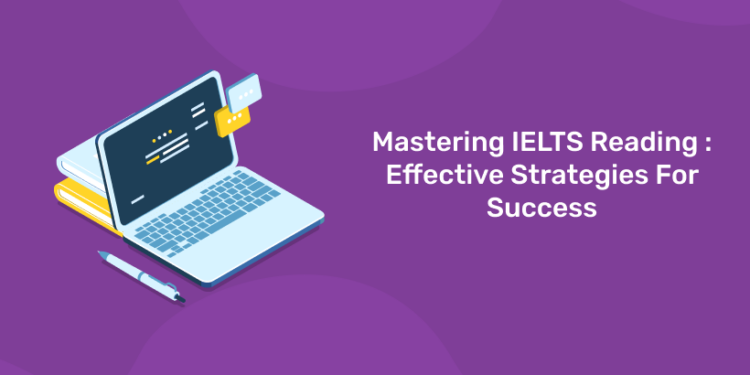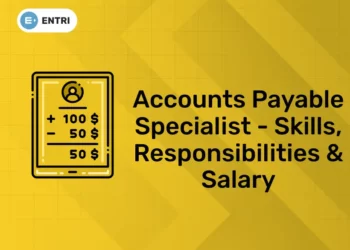Table of Contents
IELTS reading consists of three passages, taken from various sources, such as newspapers, magazines, journals, and books. The passages cover a range of topics and increase in difficulty level as the test progresses. It is designed to evaluate a candidate’s ability to comprehend, analyze, and interpret written texts. To improve your performance in the IELTS Reading section, it is important to adopt effective strategies. In this article we are providing some valuable techniques which helps you to succeed.
Strategies For IELTS Reading
Build Vocabulary
By reading newspapers, magazines and academic articles regularly you can enhance your vocabulary. It not only helps you to improve your reading speed. It is important to improve your vocabulary for understanding the nuances of the text and answering comprehension questions accurately. Develop the practice of acquiring new vocabulary and comprehending their definitions.
Time Management
Effective time management is a significant strategy for IELTS reading test. For each passage a designated time slot is allotted. So dedicate s designated time duration for each passage. Skim the questions before reading the passage to have an idea of what to look for. Remember, managing time efficiently allows you to complete all the questions within the given timeframe.
Identify Type Of Questions
Need to familiarize different types of questions in the IELTS Reading section, such as multiple choice, matching headings, true/false/not given, and sentence completion. Understanding these question types will help you approach them strategically and save valuable time during the test.
achieve your desired band score ! enroll now !
Ways To Improve IELTS Reading
Know the test
Like all international language testing systems, IELTS has a unique format, so familiarise yourself with the following questions.
- How long is the test?
- What’s the format?
- How many texts are there?
- What kind of texts are they?
- What skills will be tested?
- What types of questions will be asked?
- What skills do you need to answer the questions?
- Will you have extra time to transfer your answers?
Do Practice
Take every opportunity to read, from novels and blogs, to newspapers and academic journals. The more variety, the better. Reading extensively will help you learn new vocabulary and enhance your reading speed. If you’re not a fan of reading, try to read the topics you are already interested in, before moving on to more academic texts.
Develop your Reading Techniques
One of the most important challenging aspect of the IELTS reading part is the length of the text. With three long texts totalling around 2,750 words, and just one hour to read them and answer 40 questions, it’s clear there’s not enough time to go through the texts thoroughly. So, learning some simple reading techniques will really help.
Skimming
‘Skimming’ is used to get a general overview of the text. Just spend a minute glancing at the titles and headings to identify the general topic. Each paragraph should be centered around one main idea, stated in the topic sentence (usually the first sentence of the paragraph, but not always). Identifying and underlining the topic sentence will help you answer the questions.
Scanning
‘Scanning’ is the technique used to locate specific keywords or phrases. When you’ve found a keyword, read the surrounding text in detail to find the answer you are looking for.
Mastering these basic techniques is the key to success.
Follow The Instructions Carefully
If the instructions state to ‘use one word only’, make sure you don’t write more than one word. You don’t want to lose points for not reading the instructions properly.
For questions where you need to fill in missing words, make sure the resulting sentence is grammatically accurate. Be careful about singular and plural forms. Also, give attention to spelling and capitalisation.
Focus On Keywords
Keywords really matters in the IELTS reading section. Texts in the IELTS reading section are packed with lots of new vocabulary. Don’t be disappoint. You don’t need to understand every word, and you can always use contextual clues to guess the meaning of a word you don’t understand.
Don’t Wait Too Long To Hear The Answer
If you feel like you’ve waited too long to hear the answer, the chances are you’ve already missed it. A big advantage of the IELTS listening test is that you don’t need to go back and forth to answer the questions; they are all in order, so just relax!
Use Most Of Your Time
Always keep in mind you have just one hour to answer 40 questions. That means you have one and a half minutes for each question. Leave difficult questions until the end; you can always go back to them later.
IELTS Reading Tips And Tricks
When you first get your reading passage you should skim read it. This means you cast your eyes over the passage to get to know the general topic and content as well as to see the general layout of the passage. It will take about 2 minutes. Following are some tips and tricks for IELTS reading.
- Focus on the READ THE QUESTIONS.
- Remember that you CANNOT CHANGE THE WORD FORM. It must be used exactly as presented in the passage.
- SCAN the Sentence to get the MAIN IDEA.
- Find the Right KEYWORDS.
- Find SPECIFIC WORDS (Date, Name, Number).
- Focus on the SYNONYMS AND ANTONYMS of Words,
- Find the Right CONNECTIVE WORDS in the Paragraphs,
- Highlight the SIGNPOST WORDS or the PIVOTAL WORDS to help you navigate the passage. For example, “In addition/ and/also” etc. refer to information in continuation. “However/though/In contrast/but” etc. refer to a shift in idea or opinion or findings. This guides you to the required part of the passage.
- Do not consider sentences with the SAME MEANING/SIMILAR/REWRITING FOR MORE EXPLANATION/
STARTER SENTENCE in the Body paragraph PREDICTION, Assume the ANSWER IN YOUR MIND so that you can pick the appropriate word. - Focus on the SINGULAR/PLURAL in the sentence,
- Check your answer to ensure that the sentence is GRAMMATICALLY CORRECT.
- Focus on the NEGATIVE OR POSITIVE in the Sentence.
- Remember that you should not exceed the Word limit.
- Do not pick any word as your answer which is already presented in any other form or as a SYNONYM before or after the blank. You have to identify missing information. DO NOT REPEAT SUPPLIED INFORMATION.
- Find out whether the gap has to be filled with an ADVERB, ADJECTIVE, NOUN, or VERB.
- Find PARAPHRASES in the text instead of words that seem DIRECTLY MATCH.
- Check CORRECT SPELLING WORDS.
- Focus on the Words Before or After the blank.
Conclusion
The IELTS Reading section is not merely a test of reading ability but a comprehensive evaluation of your skills in comprehension, analysis, and interpretation. Embrace the challenge, invest time in preparation, and achieve the rewards of your hard work. Mastering the IELTS Reading section is a momentous milestone on your path to success. By applying effective strategies, developing your vocabulary, and managing your time wisely, you can enhance your performance and achieve your desired score. Remember to practice regularly, familiarize yourself with different question types, and stay confident during the test. With dedication and perseverance, you can conquer the IELTS Reading section and unlock a world of opportunities.
| Related Links | |
| All About IELTS Exam | IELTS Reading Practice Test |
| IELTS Listening Practice Test | IELTS Writing Practice Test |
| IELTS Speaking Practice Test | Vocabulary in IELTS |










